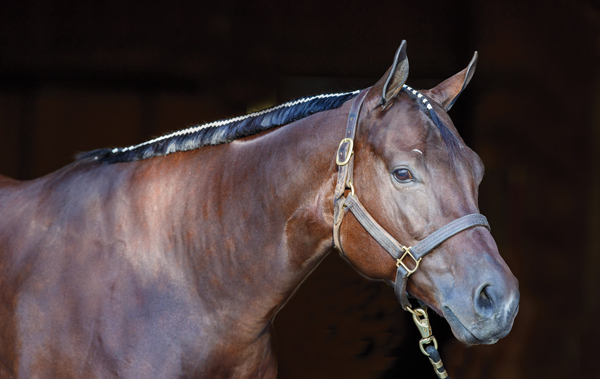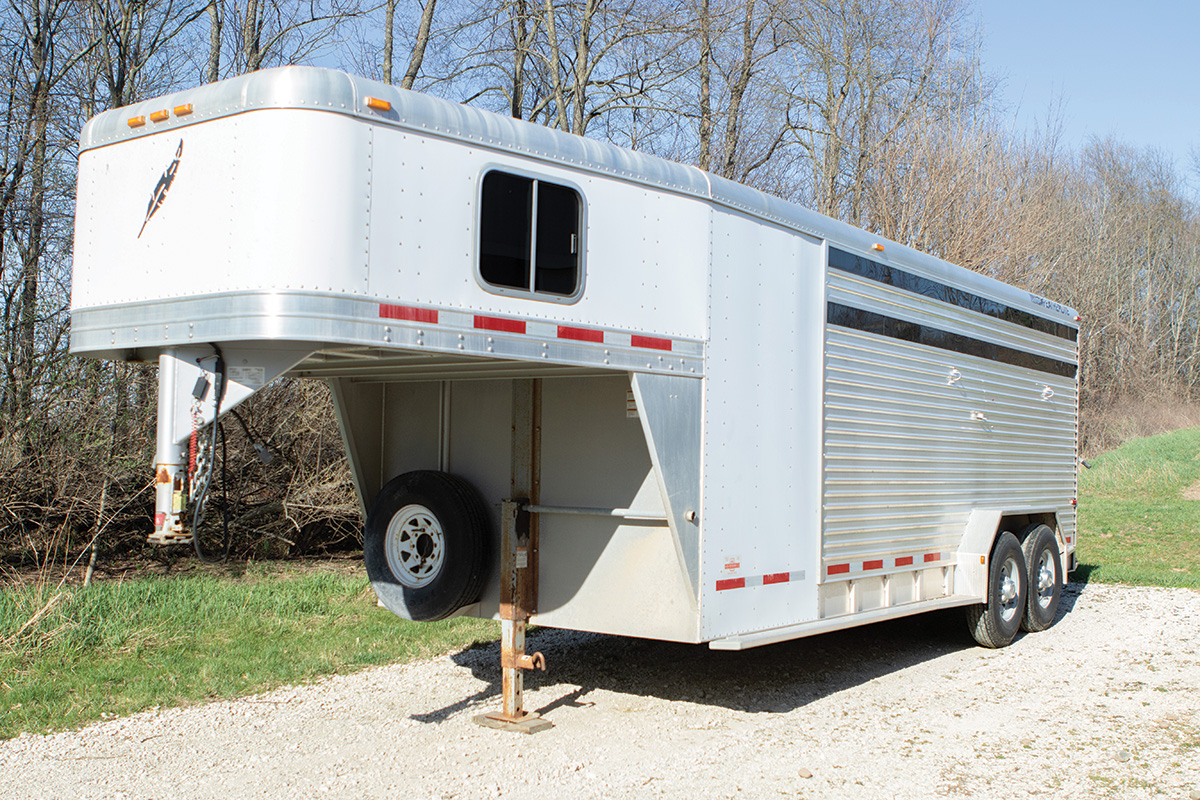
Before hitching up your horse trailer, think about the regular maintenance that will ensure safe trailering. Photo by Shelby Agnew
There is much more to horse trailer ownership than simply hitching up and driving to shows or trail rides. Routine maintenance is key to ensuring your trailer lasts a lifetime, retains its value, and keeps your horse safe while on the road. Properly caring for your horse trailer with routine maintenance can also help you avoid expensive repairs in the future.
The list of items to bear in mind when maintaining your horse trailer can feel a little overwhelming if you are unsure where to start. Luckily, only several maintenance items need to be inspected annually, while others are quick checks you can easily add into your hauling routine.
Annual inspections at professional RV and trailer repair shops are great to do before show season starts so they can look at multiple items during one appointment. Plus, you will have plenty of time in case there is an issue or parts need to be ordered.
1. Tires, Tires, Tires
Starting from the bottom up, you want your tires to be in the best possible shape. It’s worth investing in high-quality tires to prevent blowouts while on the road hauling horses.
You will want to keep a frequent eye on your tires for any holes, punctures, loss of tread, or other signs of wear and tear. And don’t forget to routinely check your tire pressure.
Similar to your car, you will need to replace your trailer’s tires every five to six years, regardless of what they look like, because certain wear and aging is not visible to the naked eye.
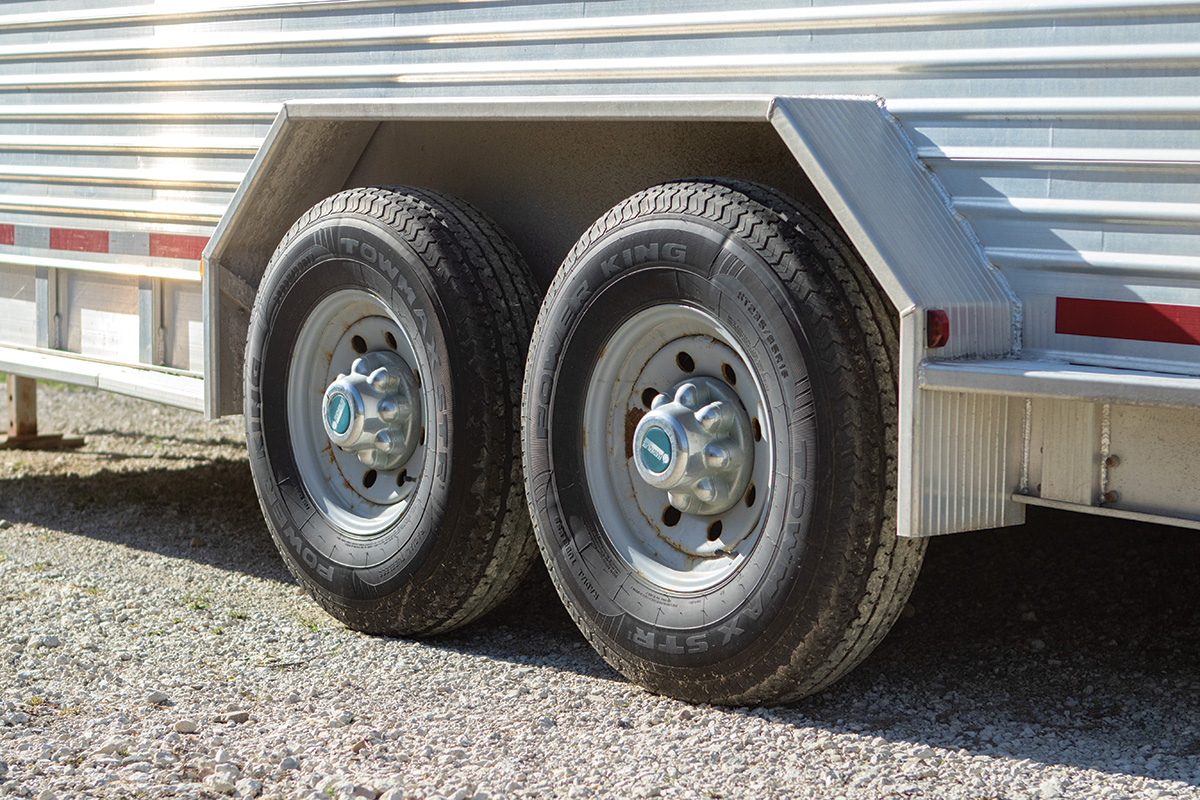
Trailer tire life span is about five to six years, but you should invest in heavy-duty tires and inspect tread and pressure regularly. Photo by Shelby Agnew
2. Lights and Turn Signals
One of the easiest ways to verify that your brake lights, running lights, and turn signals are working efficiently is to ask a friend who can walk around while you are in the driver’s seat.
Press your foot on the brakes, test your headlights, and flip on your turn signals as your friend walks around your truck and trailer to see if these lights are all working as they should.
You should check all your lights and turn signals throughout the year, since you might not immediately notice if a light goes out.
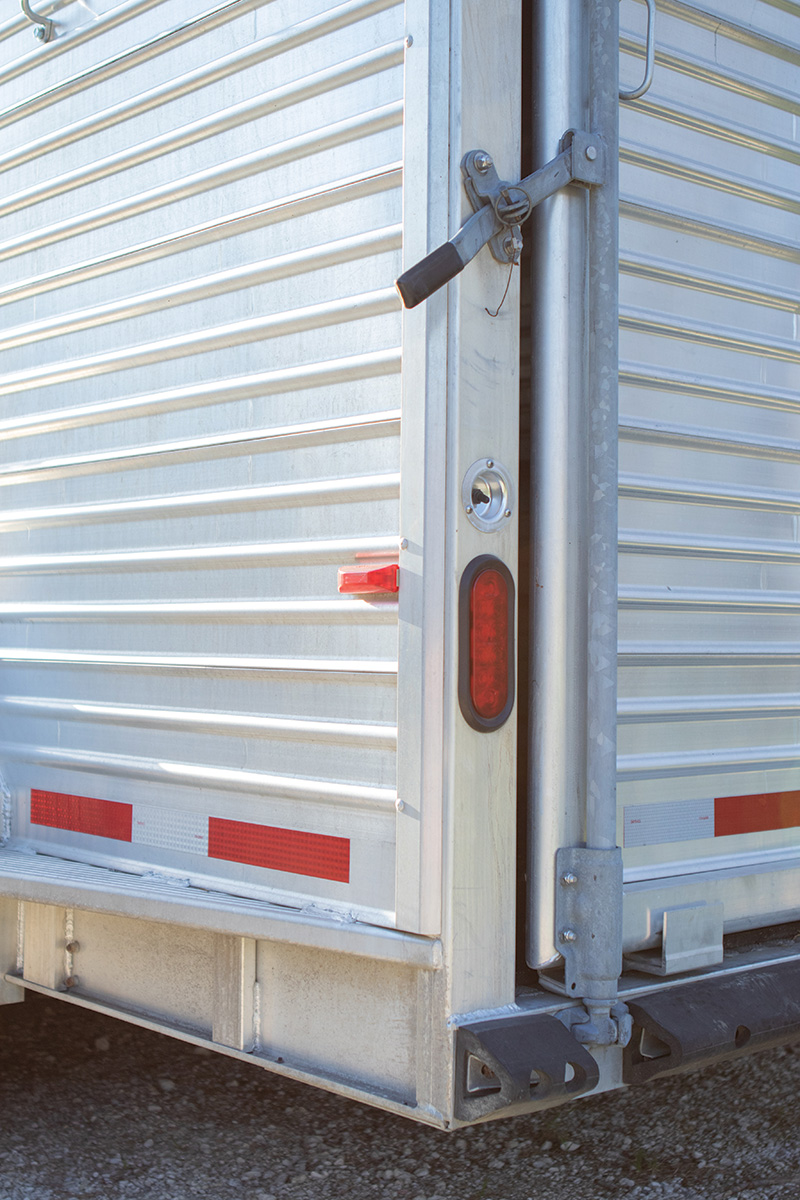
Test brake lights, turn signals and headlights before each trip. Photo by Shelby Agnew
3. Brakes and Bearings
You will want to ensure that your brake mechanisms are working properly so you don’t slide, skid, or jackknife. If you haul your horse trailer to a repair shop, the technicians can test your brakes and service your bearings for you, ensuring that your trailer stops at the same moment as your truck.
Your emergency brake actuator should be inspected and tested, too. These vital checks should be done at least once a year, depending on the number of miles you drive.
4. Floors and Roof
The floor and roof comprise one of the most important inspections, as they can rot and/or corrode. Like your brakes, they can be checked by professionals and should be repaired immediately.
Don’t let a damaged floor or leaky roof go for too long, since the restoration cost will grow and the issue could even become irreparable. Wooden floors are particularly susceptible to dry rot.
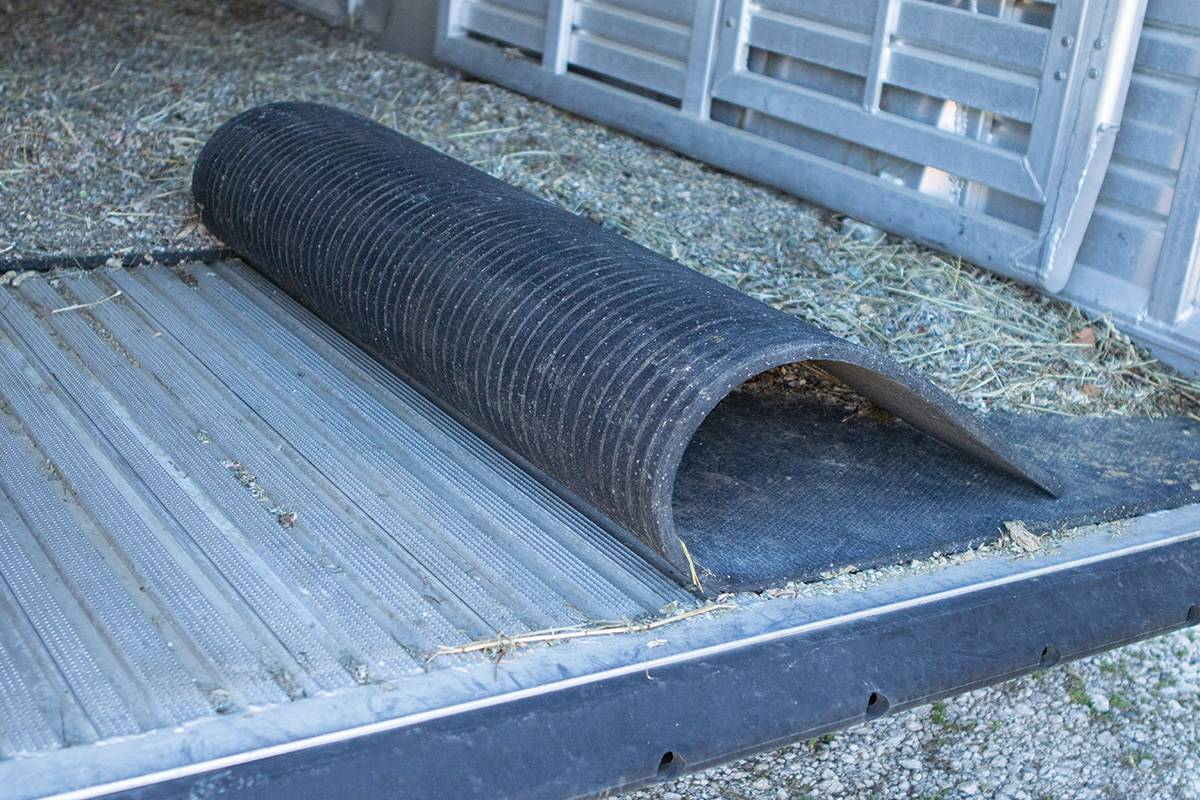
Floors need regular cleaning and inspection in order to avoid dangerous rust, corrosion or dry rot. Photo by Shelby Agnew
Although they don’t rust, you’ll want to look for any stress fractures in welds of aluminum floors. You may also see corrosion/pitting with an aluminum floor as a result of overexposure to manure and urine.
By pulling out and pressure washing floor mats at least once a year, you can catch weaknesses or damage in your trailer. If you haul frequently, mats should be pulled and cleaned multiple times throughout the season, with plenty of time to dry.
5. Doors and Windows
During your yearly check, confirm that your trailer doors and windows will not fly open if you are driving. Test out the locks and seals to ensure that everything is held together with the frame and jamb.
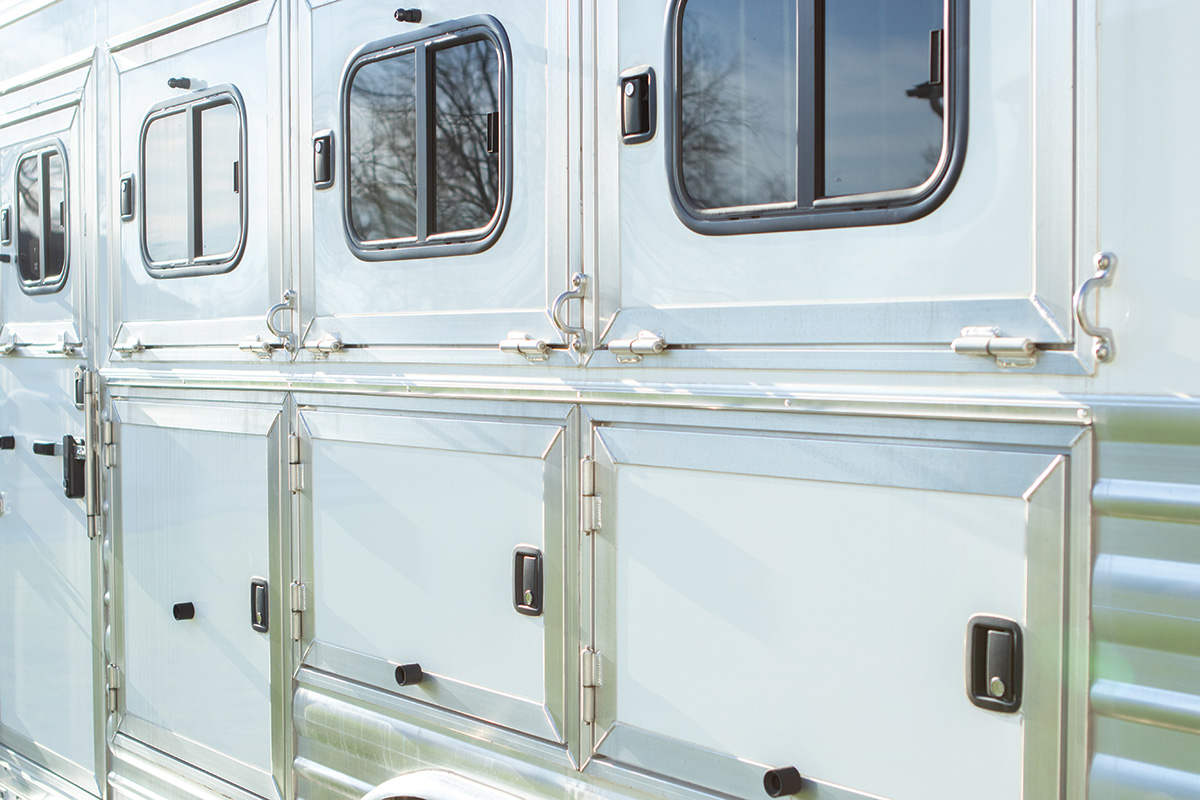
Test locks and seals on all windows and doors to make sure they won’t fly open during transit or leak damaging water in during a rain storm. Photo by Shelby Agnew
If there are any problems with the seam, or you find cracks and tears, the door or window could fly open or shatter, scaring your horses as well as causing more physical damage to your trailer.
Leaks in your doors or windows can lead to water damage. If you take your trailer to a shop, technicians can check your hinges and welds, verifying that everything is tightened or greased properly.
6. Coupler and Hitch Ball
Every trailer should have a coupler (hitch) that operates smoothly. While you establish that the coupler is not worn down, you can grease the hitch ball. By smearing some wheel-bearing grease on the ball, the coupler should have an easier time locking onto it as you lower the jack.
You can do a quick check that the hitch and ball work correctly each time you hook up. At the same time, you can see if the safety chain welds and snaps are still in good condition.
7. Trailer Storage
Even though proper storage is often an overlooked component of trailer ownership, it is crucial in maintaining the integrity of your horse trailer, especially if you live in harsh climates with heavy snow or winds.
You might want to consider investing in a cover that protects the exterior if leaving your trailer outside for long periods of time. If possible, park alongside a building that provides protection from the elements but does not have any trees that are at risk of falling on your trailer.
8. Regular Cleaning
Going the extra mile when cleaning your trailer will never be a waste of time. Not only will it prevent rust and corrosion, but your horses will thank you for hauling them in a place that is neat, tidy and safe.
Pick out all manure from the horse area after every trip and allow wet spots to fully dry. On sunny days, consider opening your trailer’s doors and windows to let air circulate.
Likewise, you should regularly pressure-wash and clean your mats, walls, and floors to get stubborn dirt and grime out. During your cleaning routine, you can look for damage or leaks that would not have been easily found otherwise.
Depending on how often you haul, you should wash and wax your trailer at least twice a year. Maintaining that like-new shine both looks good and adds years onto your trailer’s life.
Whether you own a bumper pull or a gooseneck, each maintenance item is the same and needs to be attended to. Horse trailers with living quarters come with a longer list, since they need all basic routine work done in addition to the upkeep of extra wiring, A/C, propane, plumbing, waste and water tanks, kitchen appliances, batteries, generators, awnings, and more.
Routine maintenance is not everyone’s favorite part of owning a trailer, but it’s essential to being safe on the road. Knowing which items on your trailer need habitual care will help you properly review your checklist before you embark on your next exciting hauling journey.
Further Reading on Horse Trailers
◆ Selecting a Horse Trailer to Fit Your Needs
◆ Finding the Right Truck to Tow a Horse Trailer
◆ Improve Your Gas Mileage While Pulling a Horse Trailer
This article about horse trailer maintenance appeared in the September 2023 issue of Horse Illustrated magazine. Click here to subscribe!


